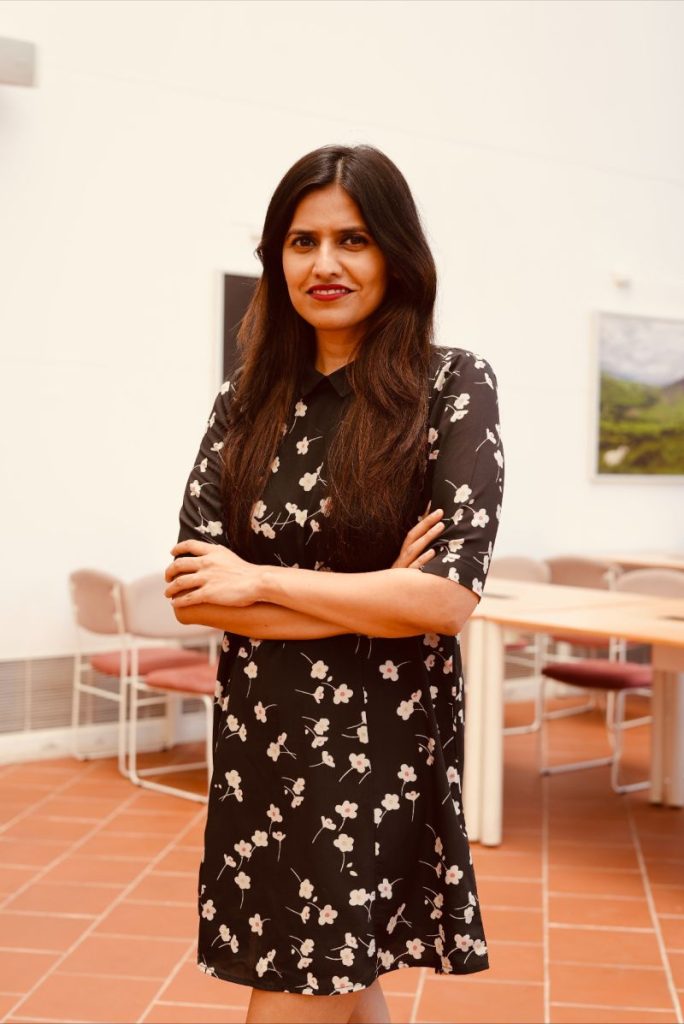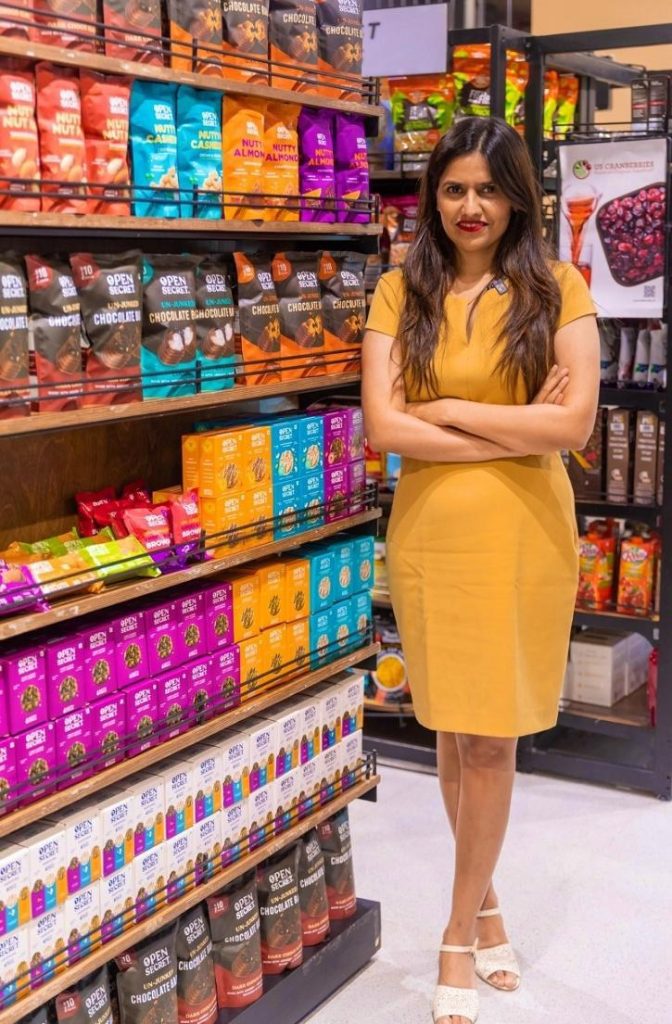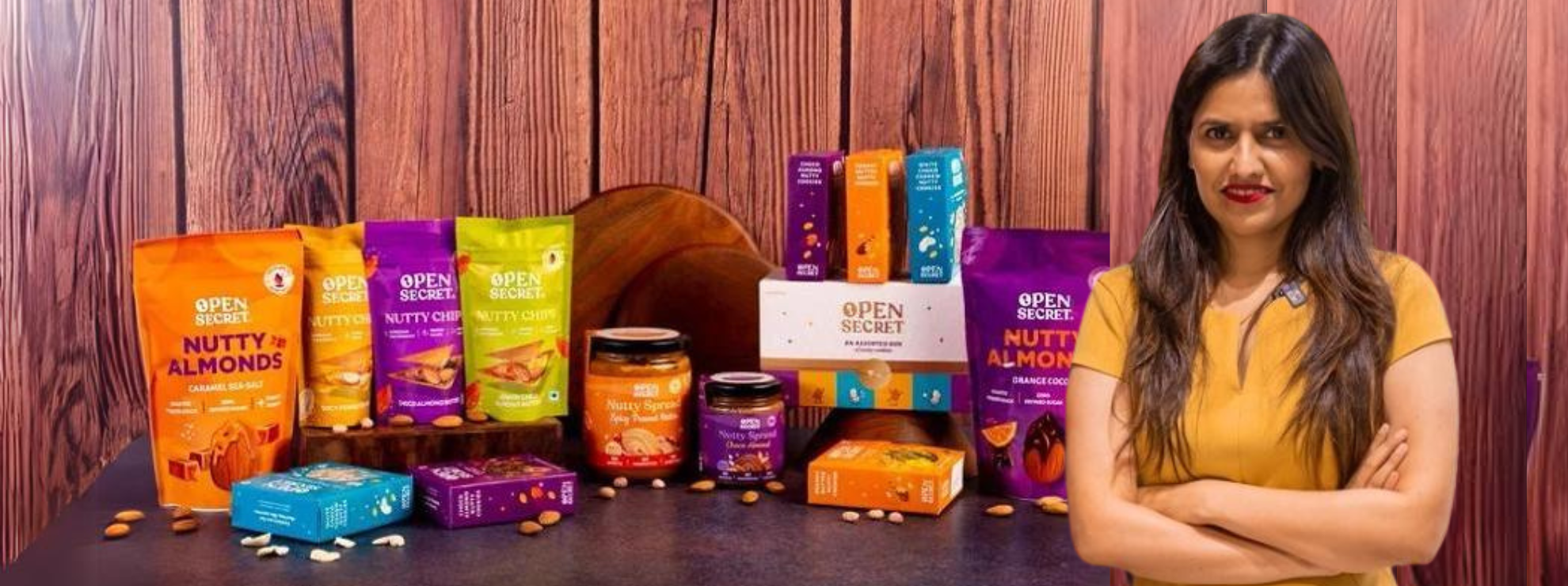(August 20, 2024) Ahana Gautam has the perfect CV – an undergrad from IIT-Bombay, followed by a master’s from Harvard Business School. Those credentials fetched her a top-tier job at Procter & Gamble in the US, but Ahana, who was born and raised in a small town in Rajasthan, took a one-way flight home instead of climbing the corporate ladder. She is the founder of Open Secret – a company that offers healthy snack options, which achieved a Rs 100 crore turnover in February 2024. Ahana’s mission is twofold: To ‘unjunk’ India’s packaged food and beverage industry and to make sure that women have a seat at the table at all rungs of the workforce.
The Global Indian grew up in Bharatpur, Rajasthan, where “families had different dreams from their daughters and different dreams for their sons.” Ahana’s mother, who is her biggest inspiration, was a professor who raised two children “single-handedly,” going to work, then coming home to take care of the home and kids. And unlike other families in Bharatpur, she encouraged her daughter to study, as well as her son. “I remember one of her professor friends came home one day and said, ‘Why are you encouraging your daughter to go to IIT? Your son has already gone to IIT Bombay, your ‘IIT-sapna pura ho gaya’. That was the kind of environment in which I grew up,” Ahana recalls. In fact, although the situation in Rajasthan has improved over the years there is still a stark disparity: male literacy stands at 79.19 percent while female literacy is still straggling at 52.12 percent.

Ahana, however, made it to IIT Bombay, where she completed a B.Tech in Chemical Engineering before heading for an MBA at Harvard Business School. She began her corporate career at Procter & Gamble, then moved on to General Mills and Fox Star Studios. And all through, the idea for Open Secret was growing in the back of her mind. “During my time in Boston, we would go grocery shopping, sometimes to Whole Foods and there were so many options for families to choose from.” She recalled her own mother struggling to find brands that were healthy and also tasted good. “At that time, India had zero innovation in the packaged food industry, even though it is the land of innovation. But kids were still eating the same snacks, made with maida, sugar and palm oil.”
Being the forerunner
Health-focussed foods and beverages are expected to be a $30 billion by CY 2026, and are projected to capture around 16 percent of the packaged food and beverage market. In 2019, however, when Ahana began working on her new startup, there were hardly any players in the market. At the time, she was also fending off relatives who tried to persuade her to marry. Again, Ahana’s mother stepped in, saying, “It’s her life. She will decide what she wants to do and what she doesn’t.” Instead, she gave her daughter Rs 2 lakh as paid-up capital for her new idea, asking to be a director in the startup. Soon after, in early 2020, Ahana Gautam launched Open Secret which is India’s first brand of healthy foods and snacks.
The demand gap was massive, especially during the pandemic when a healthy lifestyle became the need of the hour. Unfortunately, Ahana lost her mother, which she calls “the lowest moment of her life.” Again, she defied stereotypes, performing her mother’s last rites. The next day, however, she returned to work and closed a funding negotiation. “I had two choices. Either I could have paused and grieved or gone back to work,” she told Forbes. “Going back to work was a tribute to her.” Besides, a lot was at stake, including the livelihoods of her employees, most of whom were women.
Expanding into a platform
After the pandemic, more health-conscious food and beverage brands entered the market. And one consumer, a mother, told Ahana that although she enjoyed the Open Secret snack portfolio she had to look elsewhere to get, say, a good brand of tea or a healthy beverage. “I thought, how can I serve this customer better,” Ahana said. “So from a journey that began as a brand, we are now a platform. All those brands out there doing amazing work are now partners. I don’t see them as competition, I believe in my mission of unjunking F&B for every Indian family. We are here to serve the customer and take the ecosystem along with us.”
All this is only possible with the right team. “The idea is one percent, 99 percent is execution. And for that you need a strong team,” says Ahana. “We have the best people, from Harvard, from IIM who are extremely skilled but also, they are all very purpose-driven. They joined Open Secret because they believe in the mission.”
Feminism in the workspace
All through her journey, Ahana admits, she has been in a minority. At IIT Bombay, she was one of 28 girls in a class of 600. At her first job in Procter & Gamble, she was the only female on the team building a manufacturing site. “It really taught me how to tackle these situations. So by the time I began building Open Secret, when I entered these rooms, I was prepared.”
Still, as an entrepreneur, she became aware of a level of subconscious biases, which even her wealth of experience had not prepared her to face. “It becomes harder at the top because there is so much informal bonding,” she says. “I would go to Diwali parties where I would be standing a room full of men playing poker and smoking their cigars. And these informal connections play a huge role in building trust. It’s so important to bring in new women, into every discussion, into networks and to events.” Today, she stands with confidence, but that didn’t come easy. In fact, she advises women to build resilience and have a thick skin.

Open Secret offers a wide range of healthy Indian snacks
The importance of stories
Time has not improved the situation. In 2010, the female workforce participation was 20 percent or more. In 2022, it was less than 10 percent. “It has become less,” says Ahana, who is now also a venture capitalist. “When I lost my mum I went back to my hometown and what I saw there broke my heart. In that house where I grew up, there was a small girl sitting outside and kneading dough. A lot hasn’t changed. We have to ensure that we are sharing our stories, because they are the most powerful way to change societal norms.” Having strong role models can also be a game changer, she adds. “My mother was an example for me, she made me fearless. I had that kind of role model but so many girls don’t have one. So let’s share our stories.”
Ahana believes that leaders, governments and companies need to work together to create an ecosystem where women can thrive. “And as leaders, we need to ask if we are doing our best to bring more women back to the workforce. It should not be a choice, it is a responsibility.”
- Follow Ahana Gautam on LinkedIn




